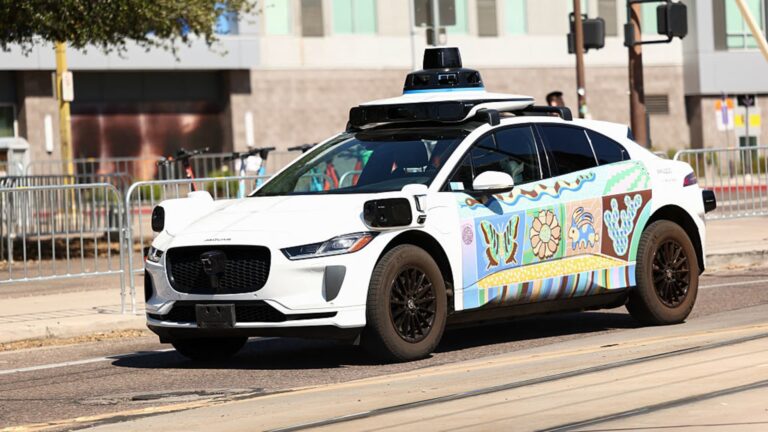
Waymo has partnered with Uber to get its robotaxis into Atlanta and Austin, Texas. Now it’s teaming up with Lyft for the first time in a commercial deal to enter Nashville next year.
Lyft stock climbed 10% on the news.
Riders in Nashville will be able to hail a Waymo robotaxi through the Waymo One app, and Lyft will add Waymo robotaxis to its platform over time, the companies said in a joint statement on Wednesday.
Lyft “will provide end-to-end fleet management services including vehicle readiness and maintenance, infrastructure, and depot operations in Nashville,” for the Waymo fleet, the companies said.
Waymo, which is owned by Alphabet, has taken a big lead in the U.S. robotaxi market, launching in Phoenix, San Francisco and Los Angeles, as well as Austin and Atlanta. It surpassed 10 million paid trips in May, and has plans to start commercial operations next year in Miami, Washington, D.C., Dallas, Denver, and now Nashville.
Lyft CEO David Risher told CNBC’s “Squawk on the Street” Wednesday that it’s a “formative” time for the industry.
“What we see in markets where there are autonomous cars … we actually see those markets growing faster, faster than a lot of the other markets we operate in,” he said.
Tesla and Amazon’s Zoox have limited tests underway. Smaller players like Wayve, Nuro and May Mobility are also working on driverless technology in the U.S.
In international markets, Waymo faces its most formidable rival in Baidu’s Apollo Go service. In August, Baidu announced a partnership with Lyft to bring driverless taxis to Europe next year. A month earlier, Baidu said it was working with Uber to deploy autonomous cars in markets outside the U.S. and mainland China, starting with Asia and the Middle East later this year.
Lyft previously worked with Waymo on a pilot in the Phoenix area in 2019. The ride-hailing company started a test program with May Mobility in Atlanta earlier this month.
Lyft can use the help as it tries to keep up with Uber, which has expanded its lead over its smaller rival. Uber’s market cap has surpassed $200 billion, making it about 25 times more valuable than Lyft.

Lyft and uber stock chart year-to-date.


